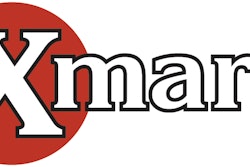
Q: You have been with Toro, Exmark's parent company, since 2009. Why were you tapped to take the lead at Exmark?
The position opened up as the previous general manager at Exmark was selected to run the company's international division.
Before I came to Toro, I held a general manager position with my previous employer, Eaton Corporation. I also have a strong financial background and extensive operational experience from prior leadership roles. More recently, I spent four years learning the systems and people at Toro in my role as vice president of operations. I'd spent a lot of time at Exmark working with its business leaders. So, when the opportunity opened up, I actually asked to be considered for it. To me this was a once in a lifetime opportunity to be involved intimately with a brand that is well known, and with a team I have great respect for. Plus, I was born and raised in Nebraska. The move to Exmark brought me back to live in the state for the first time in eight years.
Q: Michael Happe, The Toro Company's group vice president of Residential and Contractor Businesses, said a huge positive is that you thoroughly understand Exmark's business model. What would you say are the most important facets of that business model?
What stands out about Exmark—and I actually had a dealer say it to me—is the company's voracious appetite to learn about the customer; what they do and how they work. So "intimate knowledge of our customers" is one key part of our business model. You have to know who you're making product for; you can't just manufacture product and hope somebody will buy it.
Exmark also has very strong channel partners (distributors and servicing dealers). We need to give them the tools they need to be successful, which helps them bring our products to market.
(EDITOR'S NOTE: Exmark uses a hybrid distribution model. West of the Mississippi, product is shipped directly to servicing dealers, who then sell to end customers such as landscape contractors. East of the Mississippi, product is shipped to regional distributors who, in turn, place that product in servicing equipment dealerships to be sold to end customers.)
Q: When we sat down and chatted at GIE+EXPO back in October, you'd said that you are by no means taking the reins of a company that is a fixer-upper. That said, what is your focus going to be so you can leave your mark at Exmark?
I think there's potentially a real danger in trying to do something that leaves your mark; you can leave a mark in either a good or bad way. Sometimes it's actually easier to inherit a fixer-upper, because it's obvious what you need to do. So, my job is to continue the great things Rick Olson and my predecessors have started. We're definitely thinking about growth opportunities and where else we should be. Five or 10 years from now, we want to be able to look back and think "Wow, we've really done something." Maybe that's an expanded product offering or new markets we've entered.
The other thing is that, because I come from an operations background, I'm always talking about process. As our company gets bigger, there are certain things that have to be on auto-pilot, so to speak. Good, strong processes help that. I want our teams to be thinking about innovation and the next product, not invoicing or paying our suppliers, for example. If you have good processes, you'll free up time to focus on those things that really help a company and its products stand out.
Q: Exmark has held firm as market leader in the commercial mowing category for many years. How do you stay there?
This goes back to intimacy with the customer and our voracious appetite to learn. As we expand into new markets with new products and/or customers—as we have recently done with turf management equipment, for example—we have to be just as intimate with those business models as we are with our core products. At the same time, it's important that we do not wander away from what our core is: being a supplier of innovative mowing equipment to landscape contractors. We will continue to develop products that help landscape contractors be more productive so we can continue growing that part of our business and maintain or grow our market share.
The rest ties back to processes. We as a company can improve. We can improve our time to market by making products easier to design and manufacture. And we can improve some of our common business processes so they are more automated, giving us more time to focus on the things that make Exmark an industry leader.
For more on Exmark, visit greenindustrypros.com/10155791.


![Doosan Bobcat Wacker Neuson Stack 2ec Js Pb V6e[1]](https://img.greenindustrypros.com/mindful/acbm/workspaces/default/uploads/2025/12/doosan-bobcat-wacker-neuson-stack2ecjspbv6e1.CPyyz8ubHn.png?auto=format%2Ccompress&bg=fff&fill-color=fff&fit=fill&h=100&q=70&w=100)








![Doosan Bobcat Wacker Neuson Stack 2ec Js Pb V6e[1]](https://img.greenindustrypros.com/mindful/acbm/workspaces/default/uploads/2025/12/doosan-bobcat-wacker-neuson-stack2ecjspbv6e1.CPyyz8ubHn.png?ar=16%3A9&auto=format%2Ccompress&bg=fff&fill-color=fff&fit=fill&h=135&q=70&w=240)








